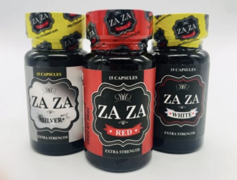Tiana

Tianeptine is not an approved drug in the United States. In the 1960s, Tianeptine was discovered and patented by French medical experts. Despite being added by physicians worldwide to antidepressants, Tianeptine has effects beyond improving mood. Its primary mode of operation is not fully or thoroughly known. They are believed to induce a morphine-like state of consciousness that leaves users feeling at ease and content, which adds to the substance’s addictive nature. According to the National Library of Medicine, nearly three million Americans are addicted to opioids such as morphine.

The fact that Tianeptine binds to the same brain receptors that opioids do and often has a similar impact is one of the reasons the drug is so desirable. But there is still so much to discover about the drug. Tianeptine is used as medicine in several nations in Europe, Asia, and Latin America but is not licensed by the FDA for prescription regulation in the United States. The FDA’s regulations are strict, and the Tianeptine research hasn’t yet complied with them. Doses range from 30 to 50 milligrams per day when obtained through a prescription in another country. According to the Journal of Analytical Toxicology, users have admitted to consuming up to 3,000 mg daily in recreational cases in the United States. The drug’s effects don’t linger in the body for long because of its short half-life which is 2 1/2 to 3 hours. Due to that, individuals start using it more frequently and in higher quantities. Users can rapidly go into a deep downward cycle requiring more and more use.
When withdrawal symptoms outweigh the desire to stop using the substance, this spiral makes it nearly impossible to stop. Many illnesses and even deaths have resulted from overuse. Most of these deaths were eventually caused by respiratory depression, which occurs when breathing slows to an ineffective state. Hospitalized Tianeptine users display indications of withdrawal from opioids, such as a slowing of the heart rate and even very severe agitation.
A Tianeptine overdose has been successfully treated using Narcan, a fast-acting injectable commonly used to reverse opioid overdose symptoms. By enacting Public Act 107 in 2018, which added Tianeptine to its list of prohibited substances, Michigan took the lead in the fight for Tianeptine regulation. Since then, several states have done the same, including Alabama, Tennessee, Minnesota, and Georgia. The drug has been taken in combination with other drugs by those who have used it. According to the Centers for Disease Control and Prevention (CDC) investigation, some people using Tianeptine also used alcohol, opioids, benzodiazepines, or phenibut. Overdoses and other health issues are more frequent when the drug is used with other substances.

As one develops tolerance or reliance, Tianeptine may have consequences similar to opioid addiction. Because of this, when someone takes more Tianeptine than advised or builds a tolerance, they may experience withdrawal symptoms, side effects, and addiction similar to opioids. Tianeptine brings on numerous withdrawal symptoms. Depending on the time of consumption, the frequency, the dosage, and whether or not additional substances were used, the severity of withdrawal will differ.
Common signs of withdrawal include:
- Anxiety
- Appetite loss
- Yawning
- Vomiting
- Fever
- Confusion
- Cramps
- Depression
- Dizziness
- Headaches
- Flu-like symptoms
- Insomnia
- Moodiness
- Suicidal ideation
- Tremors
- Diarrhea
When someone can’t taper off and needs more to feel normal, or they mix it with other medications (particularly to treat mental health conditions), start to go through withdrawals, or develop a tolerance, they may be exhibiting signs of Tianeptine abuse.
If you or a loved one are struggling with Tianeptine, reach out for help before it’s too late. There is a way to overcome addiction and it starts with asking for help. The only way out is through, and Narconon is here to help you through it.
Matt Goodson, Narconon Staff Member


